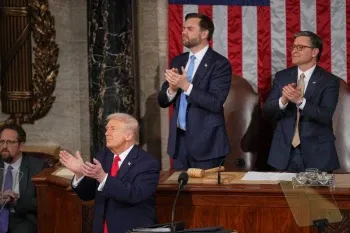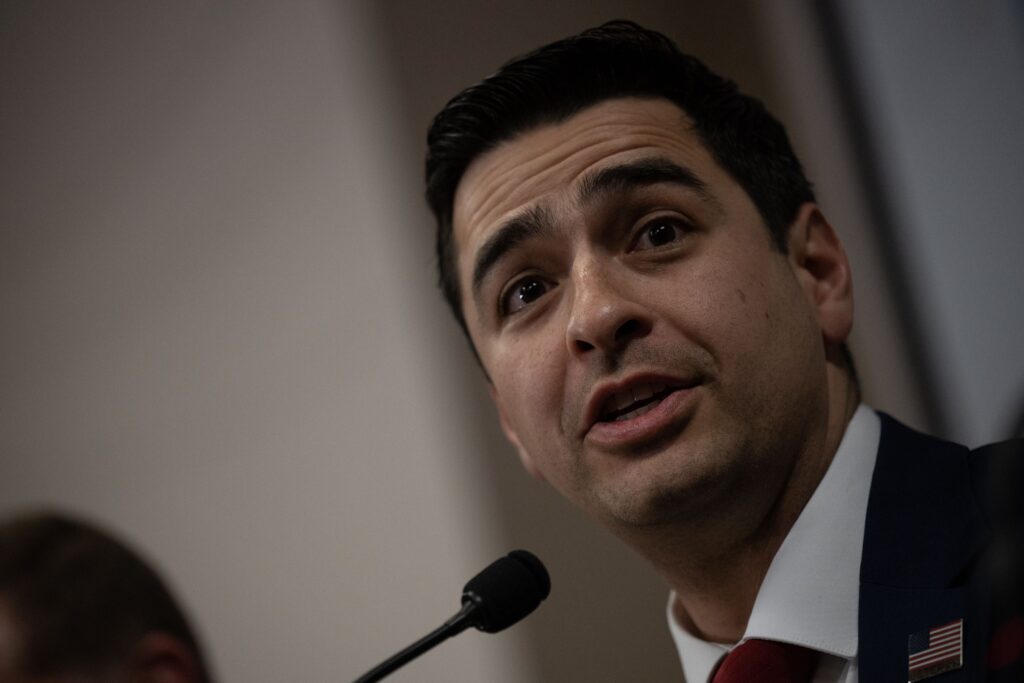How Colorado’s congressional delegation voted this week
H.R. 2792: Control Unlawful Fugitive Felons Act of 2017
This was a vote to pass H.R. 2792 in the House.
H.R. 2792 would prohibit Supplemental Security Income (SSI) payments to anyone with an outstanding felony warrant or parole or probation violation. The payments could be immediately restored after the warrant or violation is resolved. The Social Security Administration already withholds SSI payments from recipients who are considered fleeing felons, which is defined as people for whom there is an active arrest warrant for “crimes of flight.” H.R. 2792 is supposed to restore the original 1996 congressional intent of the law to include anyone who has an active arrest warrant for a felony or for a parole or probation violation. The bill applies only to felony charges, which means crimes carrying a sentence of at least one year in prison. It does not apply to anyone charged or convicted of misdemeanor crimes, such as outstanding parking tickets.
Passed.
H.R. 3823: Disaster Tax Relief and Airport and Airway Extension Act of 2017
This was a vote to pass H.R. 3823 in the House.
This bill provides emergency tax relief for victims of Hurricanes Harvey, Irma, and Maria. It reauthorizes the Federal Aviation Administration and several aviation programs through March 31, 2018. It reauthorizes Teaching Health Centers and Graduate Medical Education programs through March 31, 2018. The greatest benefit from the Teaching Health Centers is expected in rural areas that often lack enough doctors. The bill requires that federally-backed mortgages have flood insurance if they are in flood hazard areas, which can include private flood insurance that is state-approved.
Passed.
H.Res. 311: Recognizing that for 50 years the Association of Southeast Asian Nations (ASEAN) has worked toward stability, prosperity and peace in Southeast Asia.
This was a vote to agree to H.Res. 311 in the House.
This was a resolution to recognize the Association of Southeast Asian Nations (ASEAN) for its accomplishments and to promote cooperation with the United States. ASEAN is a multinational organization whose members include Brunei, Burma (Myanmar), Cambodia, Indonesia, Laos, Malaysia, the Philippines, Singapore, Thailand, and Vietnam. The organization was established in 1967. The United States established dialogue relations with the organization in 1977. H.Res. 311 supports the elevation of the U.S.- ASEAN relationship to a strategic partnership; encourages the enhancement of U.S.- ASEAN economic engagement through the elimination of trade barriers; supports ASEAN cooperation to combat terrorism and violent extremism; supports efforts to constructively address regional maritime and territorial disputes; urges parties to exercise self-restraint and to refrain from militarizing uninhabited islands; and reaffirms the U.S. commitment to join with ASEAN to combat human smuggling and trafficking in persons.
Passed.
H.R. 2824: Increasing Opportunity through Evidence-Based Home Visiting Act
This was a vote to pass H.R. 2824 in the House.
H.R. 2824 reauthorizes the Maternal, Infant and Early Childhood Home Visiting (MIECHV) Program through Fiscal Year 2022. The bill renews an expired requirement that grantees of the program demonstrate improvement on benchmark goals within three years after the program takes effect. Grantees normally refer to state agencies or their contractors. The benchmarks include reducing child abuse and neglect, increasing self-sufficiency, improving maternal and newborn health, reducing crime and domestic violence and improving school readiness and achievement. If the grantee fails to meet the goals, they must develop and implement a corrective action plan, which may be subject to approval by the Department of Health and Human Services (HHS). If the grantees continue failing to demonstrate improvement, HHS can terminate the program grant. The bill says states seeking to improve self-sufficiency must include measures of employment and earnings, rather than only measures of health insurance coverage and educational attainment. The bill allows a grantee to use program funds to support a “pay-for-outcomes initiative,” meaning grantees could decide to pay for services based on whether they deliver the outcomes they are seeking, instead of paying simply based on the number of people served. In order to ensure the “pay for outcomes” initiatives are successful, payment would be tied to a third-party evaluation using high-quality research methodologies so payments are made only when agreed upon outcomes are achieved. The bill also requires each state receiving grant funds under this program to review and update the previous statewide needs assessment by October 1, 2020. The bill requires grantees to provide matching funds under the program, beginning with 30 percent of total MIECHV costs in FY2020, 40 percent in FY2021 and 50 percent for FY2022 or any succeeding fiscal years. The bill requires HHS to designate and use data exchange standards for information that state agencies are required to use in dealings with other state agencies or the federal government.
Passed.
H.R. 2061: North Korean Human Rights Reauthorization Act of 2017
This was a vote to pass H.R. 2061 in the House.
The House voted unanimously to reauthorize a 2004 human rights law that seeks to transmit uncensored information to the population of North Korea. The reauthorization adds new provisions to extend the dissemination of information beyond radio broadcasting. It was a response to threatening words and actions from North Korean leaders that led to new sanctions from the Trump administration. The sanctions would cut off U.S. trade from anyone that does business with North Korea. The information campaign mentioned in H.R. 2061 is supposed to counter North Korean dictator Kim Jong Un’s control of the media that deprives his citizens of news from outside their own country. The bill’s sponsors say they already know the benefits of an information campaign from reports by North Korean refugees, who say accurate news reports from outside their country helped to fuel their dissent.
Passed.
Source: GovTrack











